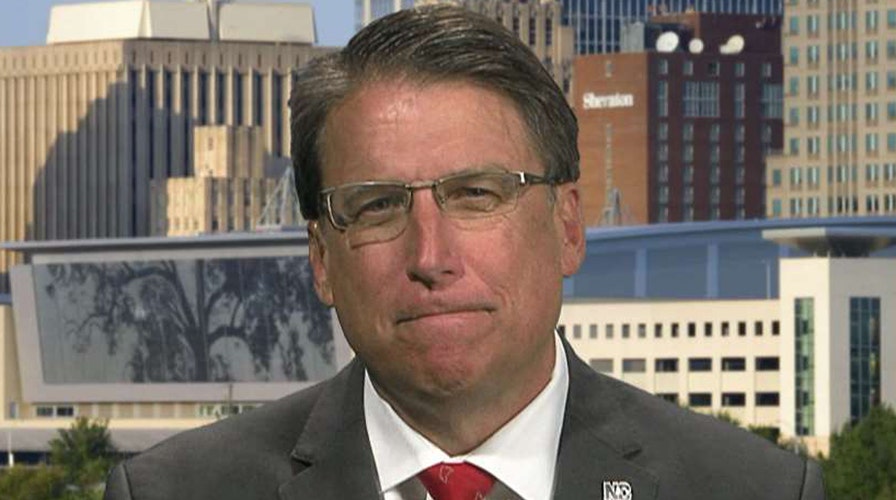Gov. McCrory opens up about North Carolina's governor's race
On 'Fox & Friends,' the governor on why the state could decide America's future
DURHAM, N.C. – North Carolina Gov. Pat McCrory conceded the governor's race Monday, clearing the way for Democrat Roy Cooper to be declared the winner nearly four weeks after Election Day.
The win by Cooper, the state's outgoing attorney general, gives Democrats an important consolation prize after a disappointing election across the country. However, Republicans retain super majorities in both legislative chambers.
In a video message from his office posted to YouTube, McCrory said, "Despite continued questions that should be answered regarding the voting process, I personally believe that the majority of our citizens have spoken, and we now should do everything we can to support the 75th governor of North Carolina, Roy Cooper."
McCrory, who became the first sitting North Carolina governor to lose a re-election bid, was weighed down by a series of divisive laws he signed, including House Bill 2.
That law limited LGBT rights and directed transgender people to use restrooms in schools and government buildings corresponding to the sex listed on their birth certificates. It led to companies, sports organizations and entertainers pulling their business from the state, costing hundreds of jobs and millions of dollars in spending.
With appeals drying up and postelection counts padding Cooper's narrow lead, McCrory announced he was giving up after Durham County elections workers were within an hour of completing the state-ordered recount of 94,000 votes there after technical troubles on election night related to tabulation machines.
County elections board chairman William Brian said the updated tally from the recount, which began Saturday in the heavily Democratic region, conformed almost exactly the original totals.
"They have been correct and accurate since Election Day," Brian said.
McCrory, who won the office by a comfortable margin four years ago, was unable to generate the same voter support that lifted Republicans Donald Trump and Richard Burr to victory in the state.
Unofficial results at the State Board of Elections showed Cooper leading McCrory by slightly more than the 10,000 votes needed to avoid an automatic recount. A total of about 4.7 million votes were cast. The state board still must officially certify the results, likely this Friday.
In a written statement, Cooper praised McCrory for his public service and said he was proud to have received support from "so many who believe that we can come together to make a North Carolina that works for everyone." He talked up unity following a contentious election season.
Cooper has stated he wants House Bill 2 repealed because he said it promotes discrimination. He had said the law and other legislation McCrory signed has harmed North Carolina's brand as good place to do business and for public education.
"Together, we can make North Carolina the shining beacon in the south by investing in our schools, supporting working families and building a state that works for everyone," Cooper said.
McCrory defended signing House Bill 2 and unsuccessfully tried to focus his campaign on the state's recovering economy and finances during his four years in office. Flooding after Hurricane Matthew in October also gave McCrory the opportunity to project the image of a leader as he directed recovery efforts as cameras watched. McCrory also may have lost votes in his home county after public opposition to toll lanes being constructed on Interstate 77.
Cooper, a former state legislator first elected attorney general in 2000 won't enter office from a position of strength. Republicans hold veto-proof majorities in both chambers of the legislature, making it difficult for him to push his agenda — or stop theirs.
McCrory's defeat marks the first time a sitting North Carolina governor has lost a re-election bid since the state constitution was amended in 1977 to allow governors to seek a second term.

























